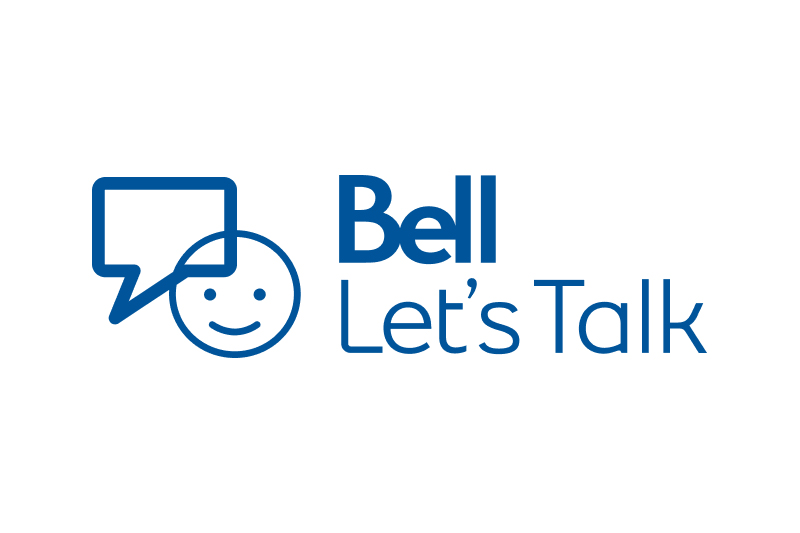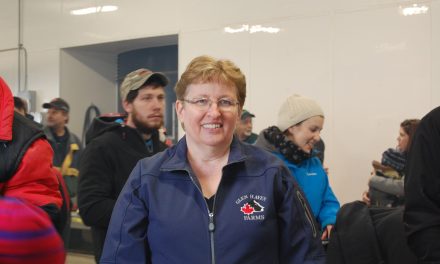By Terry Tinkess
AgriNews Staff Writer
Bell Let’s Talk Day would have been on Wed., Jan. 25, and since it began twelve years ago, it has become the largest corporate commitment to mental health in Canada. Historically, money has been raised with Bell donating $0.05 for every applicable text, local or long-distance call, tweet or TikTok video using #BellLetsTalk, as well as for every Facebook, Instagram, LinkedIn, Snapchat, TikTok, Twitter and YouTube view of the Bell Let’s Talk Day video.
The theme of the Bell Let’s Talk Day this year is Let’s Change This, and it is a collective call to action and change, as many Canadians continue to face struggles getting the mental health support they need. While we acknowledge that we have made much progress when it comes to mental health, I think we can agree that there is much more that must be done, but by…
– Sandy McDonald, Regional Director of Community Affairs for Bell Let’s Talk
Since 2011, there have been 1,491,774,955 messages of support shared on Bell Let’s Talk Day. This year, however, things will be a little different.
Sandy McDonald is the regional director of community affairs for Bell Let’s Talk, and she spoke fondly about what Bell Let’s Talk Day has become: Canada’s national day for mental health.
“Together we have grown awareness of mental health and helped to reduce the stigma associated with mental illness, but now it’s time to come together. As we are here tonight to take action and show support for mental health in meaningful and impactful ways, to help ensure that all Canadians can access the mental health and addiction supports that they need, to flourish and lead full lives.
“The theme of the Bell Let’s Talk Day this year is Let’s Change This, and it is a collective call to action and change, as many Canadians continue to face struggles getting the mental health support they need. While we acknowledge that we have made much progress when it comes to mental health, I think we can agree that there is much more that must be done, but by hosting and participating in events like this, you are helping to convert awareness into action to help create positive change for mental health in our community.”
McDonald explained what will be different in year 13 of the event: “Bell won’t be donating $0.05 for every interaction, but we have gone ahead and committed $10 million dollars, more than any past Bell Let’s Talk Day. That takes us to a commitment of over $139 million dollars toward improving the mental health of all Canadians.”
The focus now, it seems will be to move from just bringing mental health out of the shadows and reducing stigma, to a point where the concentration is on taking action. Everyone. All of us, in whatever way we can to help alleviate the problem. Small groups, or even individuals, doing what they can, creating change. That is what Man Talk, a Bell Let’s Talk Virtual Event hosted by the Champlain East branch of the Canadian Mental Health Association (CMHA) was all about.
The event featured a panel of five, each of whom have had to deal with their own mental health issues, and who are now able to share their stories to help others. Members of the CMHA moderated the event.
The five members of the panel shared a bit about their background, the mental health issues they have and were dealing with, the effect on their day-to-day life and how they were able to deal with them. The issues were broad in scope: anxiety, bipolar, suicide, depression, dealing with critical illness and being a trans-male, to name a few issues that were discussed. Each indicated that they shared their experiences in the hope that it might help someone else.
It’s not perfect, but it’s far better than waiting for help and not knowing when, or even if help might become available. Hearing from someone who may have walked the same path you’re on, and survived, can make hope seem possible.
At the close of the session, the following resources were provided:
- Bouncebackontario.ca – This is a free cognitive behavioural program that is administered by phone. You can ask your doctor to refer you, or you can self-refer. You will be assigned a one-on-one coach to help you deal with some of the challenges you may be facing, but it can also be used as a preventative program. It is mainly used to deal with anxiety, depression, and high stress.
- The Kids Help Phone (now not just for kids) – If you are in immediate need to speak with somebody you can text 686868. This is the number from the Kids Help Phone, but the program has been expanded to reach out to adults of any age. You can ask to speak to a person of the gender you feel most comfortable talking with, and the service is available in French or English. It is available 24 hours a day, 365 days a year.
- Wellnesstogether.ca – Wellness Together Canada is designed to be used on demand. You get to choose what you need when you need it. Services range from basic wellness information to one-on-one sessions with a counsellor, to community support. They are funded by the Government of Canada as well as many corporate sponsors, including Bell Let’s Talk.
You can also reach out to the CMHA as they have programs that might be helpful. For more information visit their website at https://cmha-east.on.ca.













